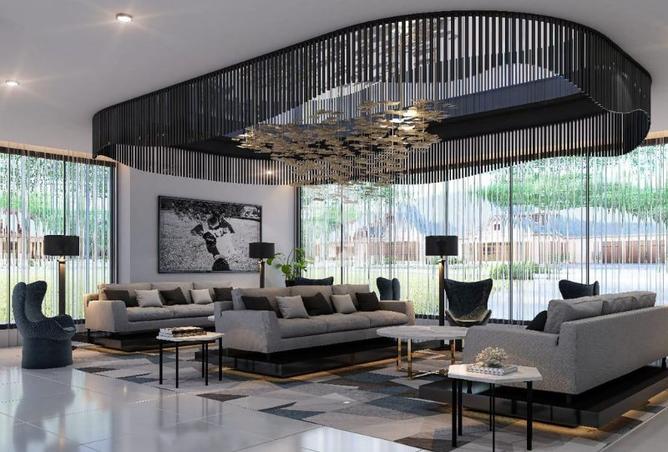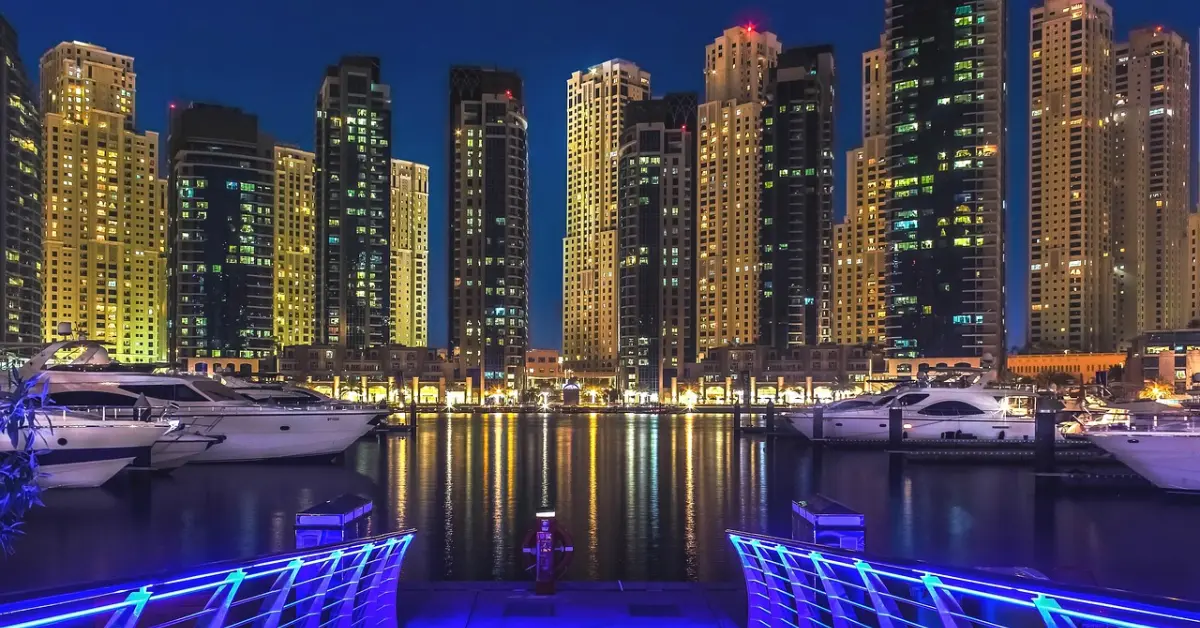Dubai’s real estate market is entering a new digital chapter. Tokenisation allows investors to buy fractional shares of property through secure blockchain technology, creating a more accessible and transparent investment landscape.
On 19 March 2025, the Dubai Land Department (DLD) launched the region’s first real-estate tokenisation project under the Real Estate Evolution Space (REES) Initiative, marking Dubai’s leadership in digital property ownership.
- What is real estate tokenisation?
- How real estate tokenisation works
- Key benefits of real estate tokenisation in Dubai
- Dubai’s real estate tokenisation ecosystem
- Challenges and considerations
- How to invest in tokenised real estate in Dubai
- Case studies and examples
- Key takeaways
- FAQs

What is real estate tokenisation?
Before diving into how it works, it helps to understand what tokenisation actually means and how it changes the way people invest in Dubai’s property market.
Definition
Real-estate tokenisation converts physical properties into digital tokens recorded on a blockchain. Each token represents a fractional share of ownership, allowing multiple investors to co-own an asset without buying the entire property. Unlike crowdfunding, tokenisation offers individually tradeable tokens with all transactions stored on transparent, tamper-proof ledgers.
Adoption in Dubai
Dubai took a pioneering step in 2025 when the DLD launched its Real Estate Tokenisation Project in partnership with VARA, the Dubai Future Foundation (DFF), and the Central Bank of the UAE. This initiative digitises title deeds and builds a blockchain-based registry, reducing entry barriers and reinforcing investor trust.
You can learn more about Dubai’s real estate growth in our guides on real estate investment in Dubai and Dubai property laws for investors.
How real estate tokenisation works
Understanding how tokenisation operates helps investors see how digital ownership is created and maintained securely.
Tokenisation process overview
- A property is identified and divided into a set number of digital tokens.
- Each token represents a fractional ownership share.
- Investors purchase tokens via licensed tokenisation platforms.
- Tokens can later be traded or resold on secondary markets.
In Dubai’s pilot phase, the Prypco Mint platform – developed with the DLD – enables investments starting from AED 2,000 in ready-to-own properties.
Blockchain and fractional ownership explained
Blockchain functions as a decentralised digital ledger where every transaction is permanently recorded. Fractional ownership allows investors to buy as many tokens as they wish, opening opportunities that were once limited to high-net-worth buyers. For now, only UAE ID holders can participate, with global expansion planned in later phases.
You can also explore how blockchain is shaping Dubai’s property market to understand the bigger picture of real-estate innovation.
Key benefits of real estate tokenisation in Dubai
Tokenisation offers advantages for both individual investors and the wider market, driving innovation and inclusion in Dubai’s property sector.
For investors
- Lower barriers to entry: Start investing from about AED 2,000 instead of purchasing full properties.
- Liquidity: Tokens can be traded, providing flexibility to enter or exit investments quickly.
- Diversification: Spread your capital across different tokenised assets to minimise risk.
- Transparency & security: Blockchain ensures traceable, immutable transactions.
- Accessibility: Regulated digital platforms make Dubai’s market accessible to global investors.
If you’re exploring options beyond digital investments, browse villas for sale in Dubai or apartments for rent in Dubai Marina to see the range of opportunities available.
Explore the available properties for sale in Dubai
-

Apartment
Listed 2 months ago
680,000 AED
SELLING BELOW OP |1% PAYMENT PLAN| FULL FURNISHED
Elitz 2 By Danube, Jumeirah Village Circle, Dubai
studio
1
440 sqft
-

Townhouse
Listed 2 weeks ago
4,000,000 AED
Private | Green Belt Backing | Well Maintained
Elan, Tilal Al Ghaf, Dubai
3
3
1,583 sqft
-

Townhouse
Listed 2 weeks ago
5,350,000 AED
Exclusive | Large Plot | Internal
Aura Gardens, Tilal Al Ghaf, Dubai
4
4
2,348 sqft
-

Apartment
Listed 1 day ago
5,000,000 AED
Full Marina View | 20% PHPP | Viewing Available
Beach Mansion, EMAAR Beachfront, Dubai Harbour, Dubai
2
3
1,229 sqft
-

Villa
Listed 8 hours ago
3,100,000 AED
Single Row | Motivated | Near to Lagoon
Nice, Damac Lagoons, Dubai
4
3
1,550 sqft
-

Apartment
Listed 6 hours ago
7,500,000 AED
FULL GOLF VIEW | HIGH FLOOR | UNIQUE
Golf Heights, The Views, Dubai
4
4
2,399 sqft
-

Villa
Listed 3 days ago
8,000,000 AED
Golf Course Facing | Spacious Villa | Single Row
Golf Lane, EMAAR South, Dubai South (Dubai World Central), Dubai
5
6
4,900 sqft
-

Apartment
Listed 3 days ago
5,300,000 AED
PRICE NEGOTIABLE | PRIME LOCATION | C TYPE
Al Tamr, Shoreline Apartments, Palm Jumeirah, Dubai
3
4
2,200 sqft
-

Apartment
Listed 3 days ago
6,750,000 AED
Brand New | Full Palm View | Vacant
Grand Bleu Tower 1, EMAAR Beachfront, Dubai Harbour, Dubai
2
3
1,575 sqft
-

Apartment
Listed 3 days ago
830,000 AED
1 Bedroom | VACANT | Ground Floor Unit
Hercules, Living Legends, Dubai
1
2
867 sqft
For the real estate market
- Broader investor base: More participants bring greater liquidity.
- Faster transactions: Blockchain shortens settlement from weeks to hours.
- Digital leadership: Dubai sets regional standards for smart-property systems.
- Market growth: Tokenised assets could reach AED 60 billion by 2033 — about 7 % of total transactions.
Dubai’s real estate tokenisation ecosystem
Dubai’s tokenisation framework relies on partnerships between regulators, developers, and technology providers.
Leading platforms and projects
- Prypco Mint — DLD’s first licensed platform for buying tokenised property shares.
- SmartCrowd & Stake — fractional-ownership startups expanding into blockchain.
- DAMAC Group & MANTRA — planning to tokenise USD 1 billion in assets.
- MAG Group & MultiBank — collaborating on USD 500 million in luxury property tokenisation.

Legal and regulatory developments
The DLD pilot made Dubai the first Middle Eastern authority to integrate blockchain-based title-deed registration.
VARA governs tokenised assets under its Asset-Referenced Virtual Assets (ARVAs) framework, ensuring compliance, disclosure, and investor protection.
Additionally, Continuous updates aim to enhance off-chain system security and operational clarity for all platforms.
Challenges and considerations
Even with strong momentum, tokenisation still faces obstacles that must be addressed before full-scale adoption.
Current limitations
- Regulatory evolution: Legal frameworks are still being refined.
- Investor awareness: Some traditional buyers remain cautious about digital property.
- System security: While blockchain is robust, platform interfaces and custody models require continued testing.
Investors who prefer established models can still explore ready properties for sale in Dubai for a more conventional entry point.
How to invest in tokenised real estate in Dubai
Getting started is straightforward, but investors should follow verified procedures on approved platforms.
Step-by-step investment process
- Choose a licensed platform (e.g., Prypco Mint, SmartCrowd, or Stake).
- Register and complete identity verification (KYC/AML).
- Select your preferred property.
- Purchase tokens using AED or approved digital payment methods.
- Manage, trade, or sell tokens through the platform dashboard.
For more insights into traditional investments, check how to buy property in Dubai as a foreign investor.
Eligibility and tax implications
Currently, only UAE ID holders can participate. International access will open once the pilot concludes. Dubai’s zero capital-gains-tax policy for residential property makes tokenised investing highly attractive. Also, it is important to know that all investors must comply with AML and KYC standards.
Case studies and examples
Recent pilot launches show just how quickly tokenisation is being embraced in Dubai.
Recent transactions
- Prypco Mint sold a tokenised AED 1.75 million villa in under five minutes.
- The DLD’s second sale saw 149 investors secure shares in under two minutes, highlighting exceptional demand.
- Major developers, including DAMAC and MAG Group, are now scaling up tokenised-asset portfolios.

Market impact and future outlook
By 2033, tokenised property could represent roughly 7% of Dubai’s total real-estate transactions. As regulation matures and investor familiarity grows, tokenisation will likely evolve into a mainstream investment avenue.
Key takeaways
Real-estate tokenisation converts property into digital shares, making Dubai’s market more inclusive and efficient. The 2025 DLD pilot – backed by VARA and DFF – ensures transparency and easier market entry. While challenges remain around regulation and awareness, Dubai’s forward-thinking framework is setting the global standard for blockchain-based real-estate investment.
You can explore more about Dubai’s evolving investment ecosystem in our guide to real-estate market trends in Dubai.
FAQs
It’s the process of converting property into blockchain-based tokens that represent fractional ownership.
The benefits are lower entry costs, faster transactions, greater transparency, and portfolio diversification.
The key challenges are ongoing regulatory development, off-chain security, and cautious adoption by traditional investors.
The DLD handles title-deed integration; VARA sets the framework for tokenised-asset licensing under its ARVA rulebook.
By 2033, tokenised real estate in Dubai could reach AED 60 billion in value, reinforcing the city’s leadership in digital property innovation.









